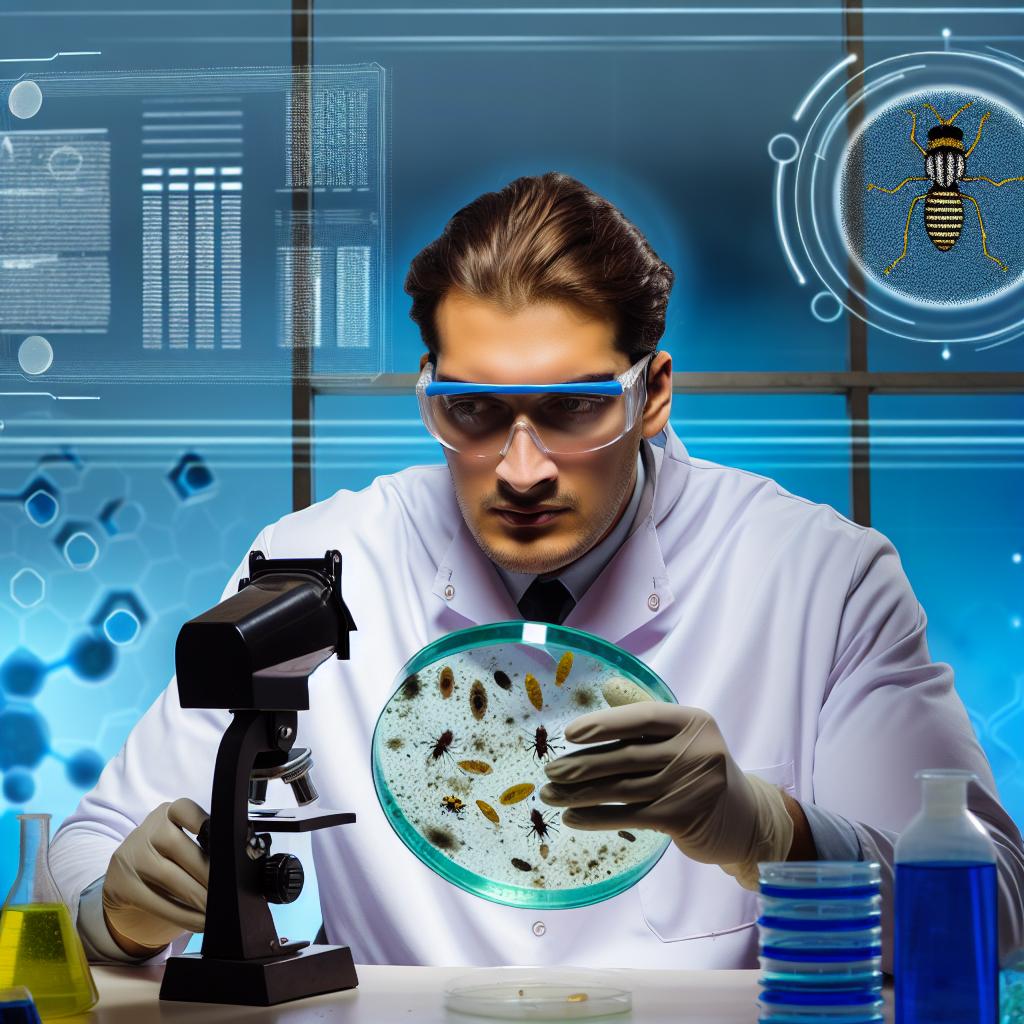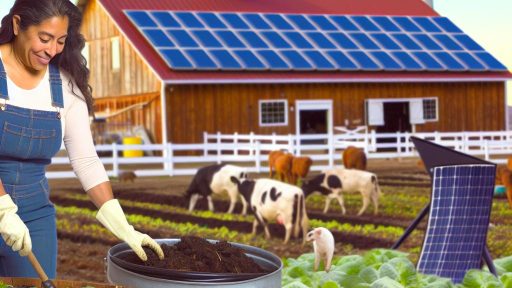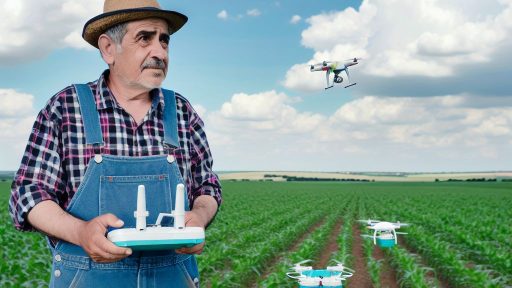Introduction to Biotechnology in Agriculture
Biotechnology plays a crucial role in modern agriculture.
It leverages biological tools to enhance crop productivity.
Farmers utilize biotechnological advances to manage pests effectively.
This field encompasses techniques like genetic engineering and molecular markers.
Directly, biotechnology improves pest resistance in crops.
For instance, scientists develop genetically modified organisms (GMOs).
These organisms can withstand specific pests and diseases.
Consequently, farmers experience lower crop losses.
Understanding Genetic Modification
Genetic modification involves altering the DNA of plants.
This process enhances desirable traits, such as pest resistance.
Scientists identify and insert specific genes into plants.
These genes are often sourced from other organisms.
As a result, crops exhibit stronger defenses against pests.
Biopesticides: A Critical Component
Biopesticides offer an alternative to chemical pesticides.
They include natural substances that combat pests effectively.
Transform Your Agribusiness
Unlock your farm's potential with expert advice tailored to your needs. Get actionable steps that drive real results.
Get StartedThese products are often derived from plants, bacteria, or fungi.
They target specific pests without harming beneficial insects.
Farmers can use biopesticides as part of an integrated pest management strategy.
Key Advantages of Biotechnology in Pest Management
- Reduces the need for chemical pesticides.
- Enhances the sustainability of agricultural practices.
- Encourages biodiversity in agricultural ecosystems.
- Improves crop yield and quality.
Farmers gain significant economic benefits through biotechnology.
Thus, biotechnology contributes to food security worldwide.
Historical Overview of Pest Management Practices
Traditional Methods
Farmers have historically relied on traditional pest management practices.
These methods often involved manual removal and hunting of pests.
For centuries, communities utilized natural predators to control pest populations.
Farmers planted companion crops to deter pests naturally.
Additionally, they employed crop rotation to minimize pest infestations.
The Rise of Chemical Pesticides
In the 20th century, the introduction of chemical pesticides revolutionized agriculture.
Initially, these chemicals provided quick solutions to pest problems.
However, negative environmental impacts quickly became apparent.
Increased pesticide use led to pesticide resistance in pests.
Consequently, non-target species also suffered population declines.
Integrated Pest Management Strategies
Integrated Pest Management (IPM) emerged as a response to traditional methods.
IPM combines biological, cultural, and chemical tactics to manage pests sustainably.
By using IPM, farmers can reduce chemical reliance without sacrificing yields.
This holistic approach promotes the use of pest-resistant crop varieties.
Furthermore, it encourages monitoring and threshold-based responses.
Advancements in Biotechnology
With the advent of biotechnology, new pest management tools became available.
Genetically modified crops are designed to resist specific pests effectively.
These crops can decrease the need for chemical pesticide application.
Additionally, biotechnology has enabled the development of biopesticides.
Showcase Your Farming Business
Publish your professional farming services profile on our blog for a one-time fee of $200 and reach a dedicated audience of farmers and agribusiness owners.
Publish Your ProfileBiopesticides utilize natural organisms to combat pests safely.
Current Trends and Future Directions
Presently, there is a growing trend towards sustainable pest management practices.
Farmers increasingly turn to organic methods and reduced chemical use.
This shift encourages innovative research and development in pest control.
Biotechnology continues to play a crucial role in these advancements.
As a result, the future of pest management looks promising and sustainable.
Types of Biotechnology Used in Pest Management
Molecular Breeding
Molecular breeding enhances the resistance of crops against pests.
This technique identifies specific genes linked to pest resistance.
Then, it accelerates traditional breeding methods.
As a result, it produces resilient crop varieties rapidly.
Genetic Engineering
Genetic engineering modifies the DNA of crops directly.
This method introduces specific traits for pest resistance.
For example, Bt cotton contains a gene from Bacillus thuringiensis.
This gene produces a protein toxic to certain insects.
Consequently, farmers can reduce reliance on chemical pesticides.
Biological Control
Biological control employs natural predators to manage pest populations.
This method reduces the need for chemical interventions.
For instance, ladybugs help control aphid infestations.
Moreover, parasitic wasps target and eliminate harmful caterpillars.
Biopesticides
Biopesticides offer eco-friendly alternatives to traditional pesticides.
These products derive from natural materials, such as plants and microorganisms.
They target specific pests while minimizing harm to beneficial organisms.
Examples include neem oil and microbial insecticides.
Thus, biopesticides support sustainable agricultural practices.
CRISPR Technology
CRISPR technology revolutionizes pest management strategies.
This gene-editing tool allows precise modifications of plant genomes.
Researchers can create pest-resistant crop varieties swiftly.
Furthermore, CRISPR can enhance crops’ resilience to environmental stressors.
Integrated Pest Management (IPM)
IPM combines various biotechnological approaches for effective pest control.
This strategy incorporates genetic, biological, and cultural methods.
It emphasizes monitoring pest populations and diverse control tactics.
Therefore, IPM promotes sustainable farming while reducing chemical usage.
See Related Content: Sustainable Crop Rotation Methods Enhanced by Technological Advances
Case Studies: Successful Implementation of Biotech Solutions
Corn Rootworms Management
Corn rootworms are a significant threat to maize crops.
They can cause substantial yield losses annually.
A biotech company, AgroTech Innovations, developed a genetically modified corn variety.
This variety expresses specific proteins toxic to rootworms.
Farmers adopting this solution reported a 30% reduction in crop damage.
Moreover, they experienced higher overall yields.
Bt Cotton Success
In the cotton industry, pest pressure can drastically affect profitability.
Showcase Your Farming Business
Publish your professional farming services profile on our blog for a one-time fee of $200 and reach a dedicated audience of farmers and agribusiness owners.
Publish Your ProfileFarmers faced challenges from various pests, particularly bollworm.
The introduction of Bt cotton changed the game.
This cotton variety is genetically engineered to produce Bacillus thuringiensis proteins.
As a result, pest damage decreased significantly.
Farmers noted a 50% reduction in pesticide use.
They also enjoyed better economic returns.
Integrated Pest Management with Biotechnology
Another successful case involves integrated pest management (IPM).
This approach combines biotech solutions with traditional methods.
In California, vineyards adopted a mix of beneficial insects and GMO crops.
They targeted pests like grape phylloxera effectively.
As a result, the vineyards reported healthier vines and sustainable practices.
Additionally, this method led to reduced chemical interventions.
Future Applications and Research
Looking forward, biotech innovations continue to evolve.
Ongoing research aims to develop crops resistant to new pests.
Moreover, scientists are exploring RNA interference technology.
This method can target specific pest genes, reducing overall pesticide use.
Such advancements promise a sustainable future for agriculture.
Farmers can benefit from increased efficiency and reduced environmental impact.
You Might Also Like: Controlled Environment Agriculture Systems for Efficient Farming
Benefits of Biotechnology in Pest Control
Enhanced Efficiency
Biotechnology significantly increases the efficiency of pest management strategies.
It allows for the creation of targeted pest control methods.
As a result, farmers can achieve better outcomes with fewer resources.
Reduced Environmental Impact
Using biotechnology minimizes chemical pesticide dependence.
This reduction leads to fewer harmful effects on non-target species.
Consequently, ecosystems can maintain their natural balance.
Increased Crop Yields
Biotechnology helps in developing pest-resistant crop varieties.
These varieties withstand pest pressures without compromising yield.
Consequently, farmers can produce more food sustainably.
Cost-Effectiveness
Biotech solutions can lower overall pest management costs.
With targeted approaches, less product is required for effective control.
Farmers benefit from lower expenses and improved profit margins.
Safety for Human Health
Biotechnology contributes to safer pest management practices.
By reducing chemical pesticide usage, it lowers health risks for humans.
Thus, it promotes safer food for consumers.
Integration with Other Farming Practices
Biotechnology works well alongside organic and sustainable farming practices.
Farmers can integrate biotech methods into holistic pest management strategies.
This integration enhances the overall resilience of farming systems.
Research and Development Opportunities
Investing in biotech opens avenues for innovative pest control solutions.
Research drives the development of new technologies and methods.
As a result, farmers continuously benefit from advancements in the field.
Showcase Your Farming Business
Publish your professional farming services profile on our blog for a one-time fee of $200 and reach a dedicated audience of farmers and agribusiness owners.
Publish Your ProfileDelve into the Subject: Integrating Drones Into Sustainable Farming Practices

Challenges and Concerns Related to Biotech in Agriculture
Environmental Impact
Biotechnology can sometimes lead to unintended ecological consequences.
For example, transgenic crops may affect non-target species.
Also, the risk of gene transfer to wild relatives exists.
Consequently, these factors could disrupt local ecosystems.
Human Health Risks
Public concerns about biotechnology often center on health risks.
Some fear that genetically modified organisms may cause allergies.
Researchers, however, stress that rigorous testing is essential.
It ensures safety before products reach consumers.
Economic Considerations
Implementing biotechnology can increase agricultural costs.
Farmers may face high expenses for biotech seeds and traits.
This can limit accessibility for small-scale farmers.
Moreover, reliance on biotech companies raises concerns about monopolies.
Regulatory Challenges
Regulatory frameworks for biotechnology vary globally.
This inconsistency creates confusion for agricultural stakeholders.
Additionally, lengthy approval processes can delay innovation.
As a result, countries may miss out on beneficial technologies.
Socio-Cultural Issues
Public perception plays a crucial role in biotechnology adoption.
In many communities, skepticism towards biotech practices exists.
Some individuals associate biotechnology with unnatural practices.
This can hinder acceptance and implementation in certain regions.
Ethical Considerations
Bioethics presents important questions regarding biotechnology.
One issue involves the manipulation of living organisms.
Moreover, the implications of patenting life forms are contentious.
Conversely, some argue that biotechnology can help feed the world.
Uncover the Details: How Farm Management Software Enhances Crop Planning Efficiency
Regulatory Framework Surrounding Biotech Pest Management
Introduction to Regulations
The regulatory framework for biotech pest management is crucial for safety.
It ensures that biotech products undergo rigorous assessment before use.
Moreover, this framework addresses potential risks to human health and the environment.
Key Regulatory Agencies
In the United States, several key agencies oversee biotech pest management.
The Environmental Protection Agency (EPA) evaluates the environmental impacts.
The U.S. Department of Agriculture (USDA) manages the approval of new plants.
Additionally, the Food and Drug Administration (FDA) assesses food safety concerns.
International Regulatory Frameworks
Globally, countries have diverse regulatory approaches to biotech pest management.
The Codex Alimentarius Commission develops international food safety standards.
Countries in the European Union implement strict regulations on biotechnology.
Conversely, some countries favor more flexible regulations to promote innovation.
Public Participation and Transparency
Public involvement plays an essential role in biotech regulations.
Transparency in regulatory processes helps build trust among stakeholders.
Public comment periods allow citizens to voice concerns about biotech products.
Showcase Your Farming Business
Publish your professional farming services profile on our blog for a one-time fee of $200 and reach a dedicated audience of farmers and agribusiness owners.
Publish Your ProfileThis engagement fosters a dialogue between regulatory bodies and the public.
Challenges in Regulation
Regulating biotech pest management poses several challenges.
Rapid advancements in technology often outpace existing regulations.
Additionally, balancing innovation with safety remains a key concern.
Regulators must adapt to emerging scientific findings continuously.
Future Directions in Biotech Regulation
The future of biotech pest management regulation is evolving.
Increased collaboration among international agencies may improve standards.
Regulators might also embrace adaptive frameworks for flexibility.
Furthermore, integrating stakeholder input can enrich regulatory processes.
Future Trends and Innovations in Biotech Pest Management
Advancements in Genetic Engineering
Genetic engineering plays a crucial role in pest management.
Research focuses on developing pest-resistant crops.
Biotechnology enables precise gene editing techniques.
These techniques enhance crop resilience against pests.
Moreover, they minimize the need for chemical pesticides.
Biopesticides and Biological Control Agents
Biopesticides represent a growing sector in pest management.
They offer environmentally friendly alternatives to conventional pesticides.
Utilizing natural organisms can suppress pest populations effectively.
Research now emphasizes enhancing the efficacy of these agents.
Furthermore, biopesticides reduce risks to human health and wildlife.
Integration of Artificial Intelligence
Artificial intelligence is transforming pest management strategies.
AI tools analyze data to predict pest outbreaks accurately.
These tools offer insights into effective intervention methods.
Consequently, farmers can optimize their pest management practices.
Additionally, AI aids in monitoring pest populations in real time.
Sustainable Practices in Agriculture
Adopting sustainable practices remains essential for pest management.
Crop rotation and intercropping can disrupt pest life cycles.
These practices promote natural pest control mechanisms.
Moreover, they enhance soil health and biodiversity.
Furthermore, sustainability helps mitigate the adverse effects of climate change.
Future Research Directions
Future research aims to explore new biotechnological avenues.
Precision farming technologies are gaining attention.
These technologies allow tailored pest management strategies.
Research will also investigate pheromone-based pest control techniques.
Such methods can disrupt pest mating and reduce populations.
Additional Resources
Impacts of genetically engineered crops on pesticide use in the U.S. …




